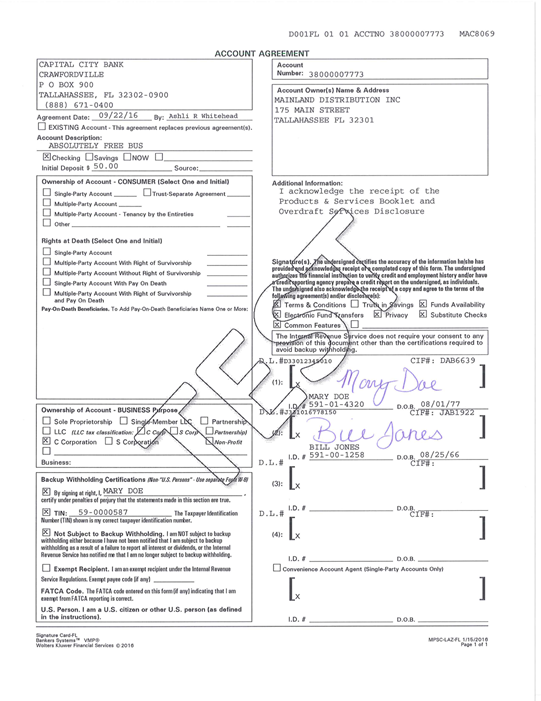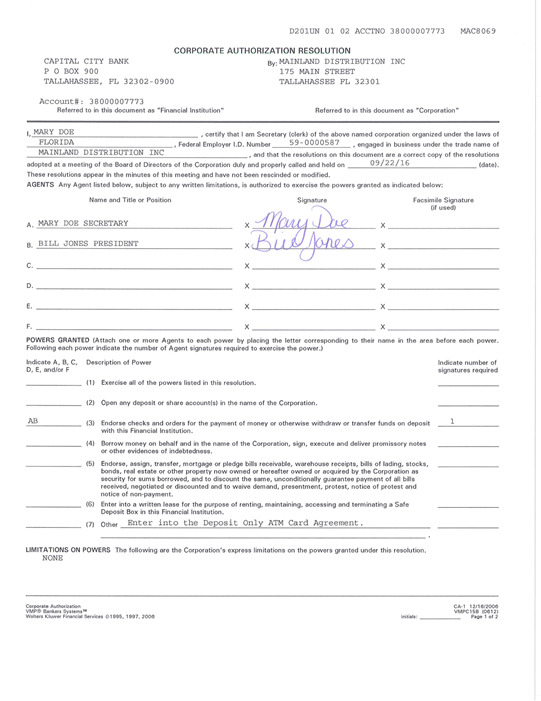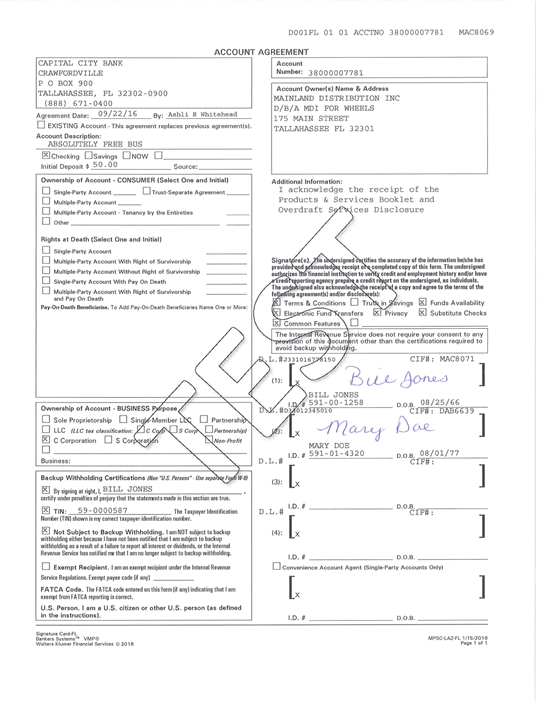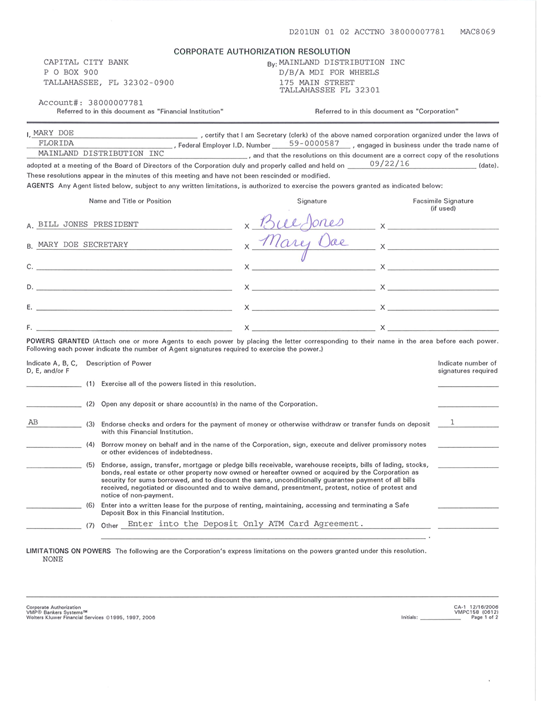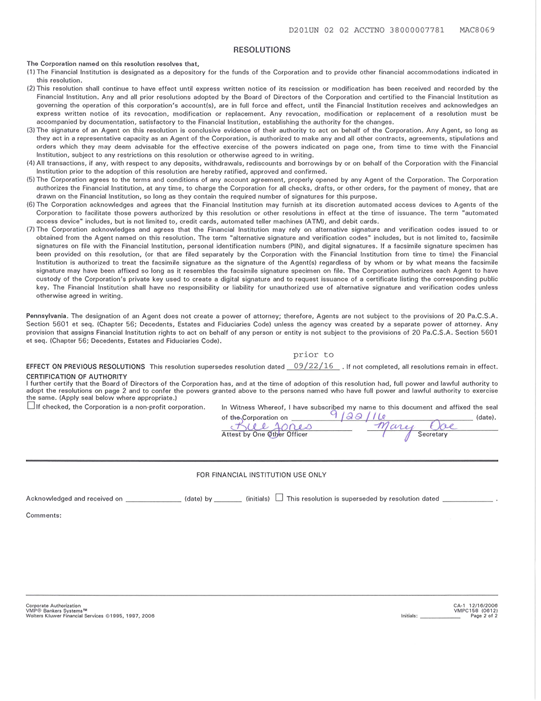Click on the tabs below for information on corporations.
For business CIF requirements, click here.
For Opening a New Corporation Account, click here.
Definition
A corporation is a separate business entity owned by shareholders. Shareholders' main responsibility is electing a board of directors. The board of directors and/or officers make decisions that affect the corporation. The board of directors appoints officers to manage the day-to-day operations of the business. Corporations can be non-profit or for-profit.
A non-profit corporation is formed to serve the public good (for example: charitable, religious, educational, or other public service reasons) rather than for the creation of profit as businesses do.
C Corporation
A traditional corporation (C Corporation) is a business structure that is created as a separate, distinct legal entity from its owner(s). Corporations have bank accounts, own property, conduct business, and can establish a line of credit, irrespective of the individual accounts or credit of the shareholders.
S Corporation
An S Corporation is named in such a manner because of its organization meeting the Internal Revenue Service (IRS) requirements to be taxed under Subchapter S of the Internal Revenue Code. It is structured in such a manner as to provide a pass-through entity for tax purposes, much like a partnership whose income or losses "pass-through" to the individual shareholders' personal tax returns (in direct proportion to their investment or ownership in the company), while still providing the same protections for assets and from liabilities as a traditional corporation. The shareholders will pay personal income taxes based on the S corporation's income, regardless of whether or not the income is actually distributed, but they will avoid the "double taxation" that is inherent to the traditional corporation or C corporation.
To qualify for "S" corporation status, the corporation must meet the following requirements:
- Be a domestic corporation
- Have only allowable shareholders
- May be individuals, certain Trusts and Estates and
- May not be partnerships, corporations or non-resident alien shareholders
- Have no more than 100 shareholders
- Have only one class of stock
- Not be an ineligible corporation (for example: certain financial institutions, insurance companies, domestic international sales corporations)
Required Documentation to Open Account
Obtain all of the following:- Articles of incorporation (by the state of incorporation). Note: Articles of incorporation MUST contain ALL pages listing managing members.
- Alabama -- from client
- Florida -- from client or FL state site
- Georgia -- from client or GA state site
- Verification of active status from the state (print and attach for new accounts)
- For revised accounts:
- Updated or revised by-laws or meeting minutes documenting requested changes
- Signed and notarized CCB business affidavit
Click here to access the Business Affidavit Reference Guide.
See Reviewing Business Legal Documents for more information.
Tax Identification Number
Use the Corporation’s Employer Identification Number (EIN) for Internal Revenue Services (IRS) reporting.
C Corporation
A regular Corporation (also known as a C Corporation) is taxed as a separate entity. The Corporation must file a Form 1120 each year to report its income and to claim its deductions and credits.
S Corporation
An S Corporation itself is not subject to federal income tax. Instead, the shareholders are taxed upon their allocated share of the income. Form 1120S is used for an S Corporations annual tax return. Shareholders do not have to pay self-employment tax on their share of an S Corporation's profits.
Account Titling
- Title the account in the name of the corporation. Client's name auto-populates in the Customer Name field.
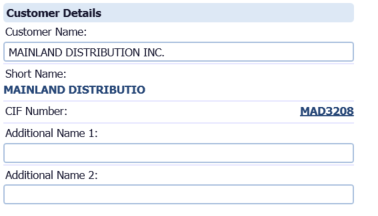
- If the corporation has a fictitious name, In the Additional Name 1 field enter the D/B/A name.
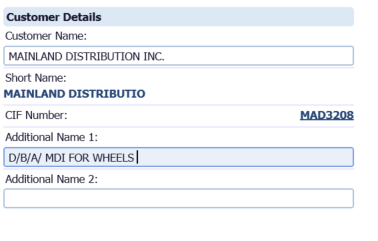
Ownership Requirements
- The corporate officer(s) / authorized signer(s) sign the signature card
- A signature card is required with the corporate officer(s) / authorized signer(s) signature above their name(s) in the Signatures section
- The resolution requires ALL signatures on lines A - F as required
- If the Corporation account has only 1 authorized signer and multiple officers, the additional officer(s) must attest to the opening of the account by signing the bottom of the resolution

Signature Card Example
Corporation
